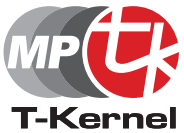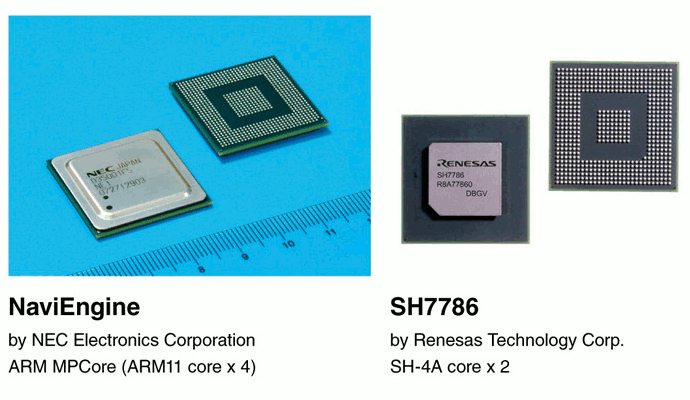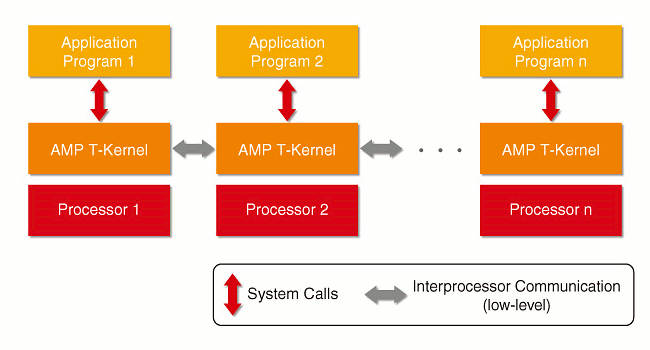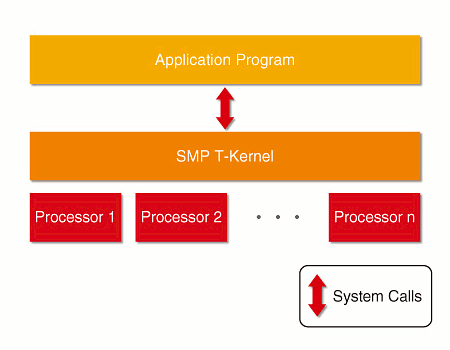What is MP T-Kernel?
Real-time OS for multiprocessor systems including multi-core processors
MP T-Kernel is a version of T-Kernel that supports multiprocessor systems including multi-core processors. MP T-Kernel inherits the real-time performance of T-Kernel, and is designed as the real-time OS optimized for embedded systems based on multiprocessor system architecture including multi-core processors.
MP T-Kernel Specification and Source Code
The following specifications and source codes are released on the TRON Forum website.
Features of MP T-Kernel
Real-time OS for embedded systems
Embedded systems require real-time OSs that have short response time to events and predictability of execution time. This holds true of the embedded systems based on multi-processor architecture. MP T-Kernel is a genuine real-time OS that inherits the technology lineage of µITRON specification OSs which are widely used in embedded systems.
High compatibility with standard T-Kernel
The design of MP T-Kernel paid special attention to the compatibility with T-Kernel for single processor systems. MP T-Kernel can reuse the existing know-how as well as software asset on single processor systems. Creation of software that run both on single processor systems and multiprocessor systems is also possible.
Support for Many Hardware Devices
Embedded systems come in many forms. MP T-Kernel is designed to be independent of specific hardware and system architecture. It runs on different multi-core processors such as NaviEngine and SH7786. AMP (Asymmetric Multiple Processor) and SMP (Symmetrical Multiple Processor) configurations are supported by AMP T-Kernel and SMP T-Kernel respectively. It will also support a mixed model of AMP and SMP T-Kernels, in anticipation of increasing number of processors in the future.
[Support for Asymmetric Multiple Processor (AMP)]What is AMP T-Kernel?
AMP T-Kernel is a version of MP T-Kernel that supports AMP (Asymmetric Multiple Processor).
Features of AMP T-Kernel
In AMP T-Kernel, T-Kernel and application programs run on each processor independently. Application programs can execute synchronization and communication between processors with system calls offered by AMP T-Kernel.
AMP T-Kernel features high compatibility with software on single processor T-Kernel. Know-how as well as software asset created on T-Kernel is reusable. Also, software porting is easy because existing T-Kernel synchronization and communication primitives (semaphores, event flags, message buffers, etc.) are available and can be used without any change.
Standard Extension that supports AMP T-Kernel
AMP T-Kernel can use advanced OS features such as virtual memory management, process management, and file management with Standard Extension like T-Kernel on single processor systems does.
Standard Extension that supports AMP T-Kernel also has shared file system management feature to share a local disk attached to a specific processor in the entire system.
[Overview of Shared File System Management]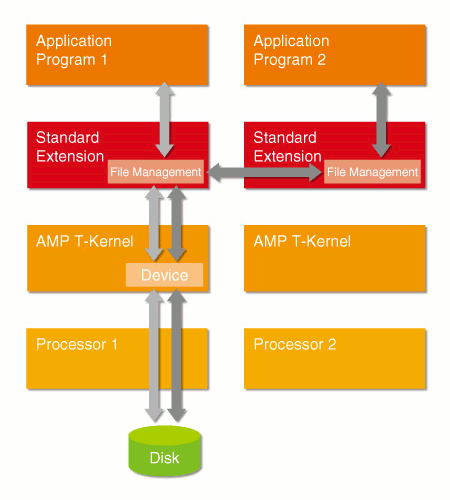
Support for Symmetric Multiple Processor (SMP)
What is SMP T-Kernel?
SMP T-Kernel is a version of MP T-Kernel that supports SMP (Symmetric Multiple Processor).
Features of SMP T-Kernel
SMP T-Kernel assigns programs to each processor automatically. Multiple processors can be used efficiently because programs are assigned dynamically according to the system load.
In SMP T-Kernel, it is not necessary for the application programs to be aware of the number of processors. You can run the same application program with a different number of available processors.
Standard Extension that supports SMP T-Kernel
SMP T-Kernel can use the advanced OS features such as virtual memory management, process management, and file management with Standard Extension in the same way as T-Kernel on single processor systems does.

